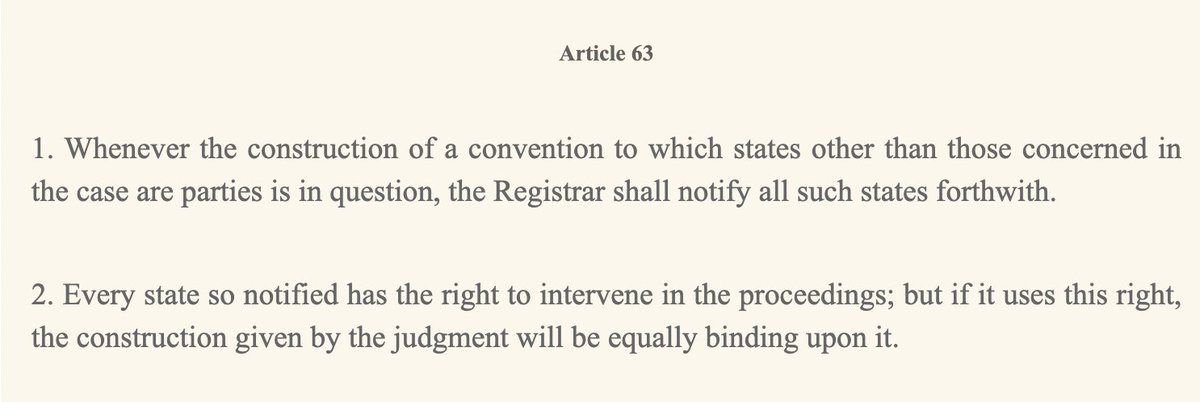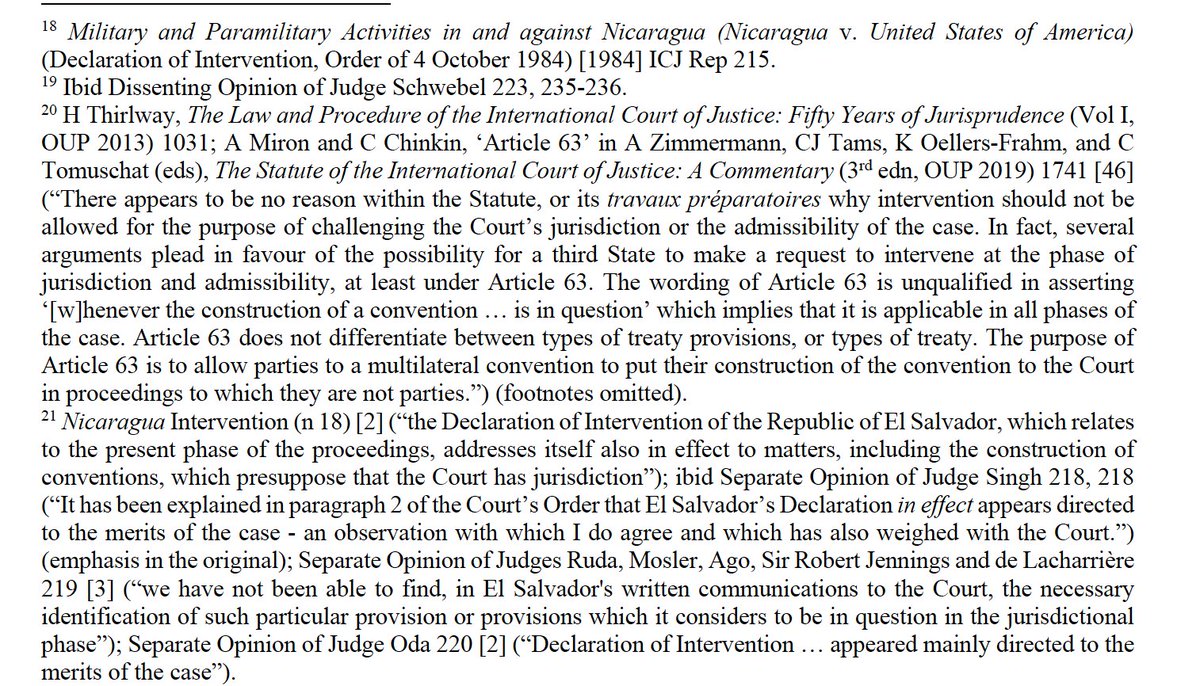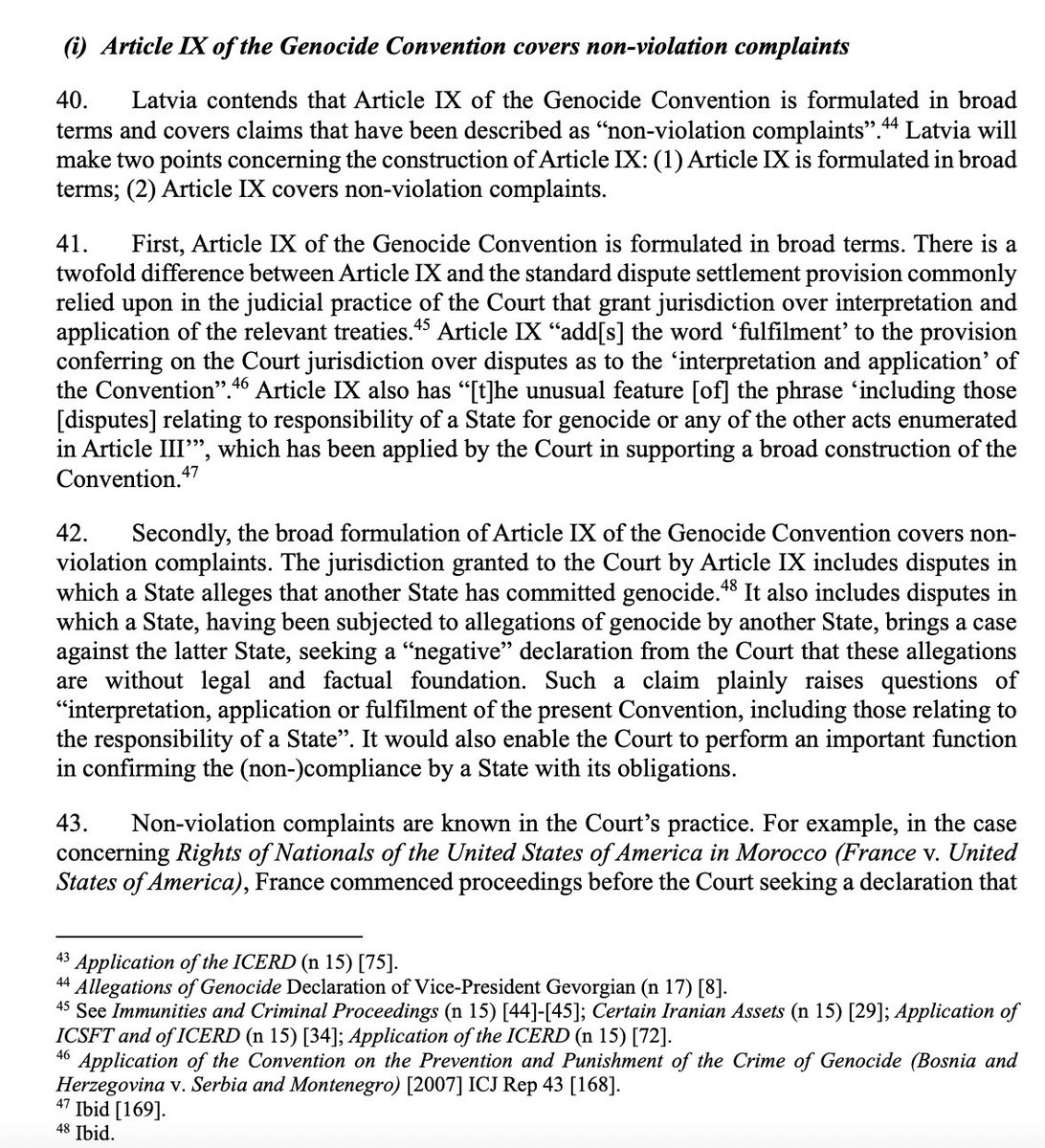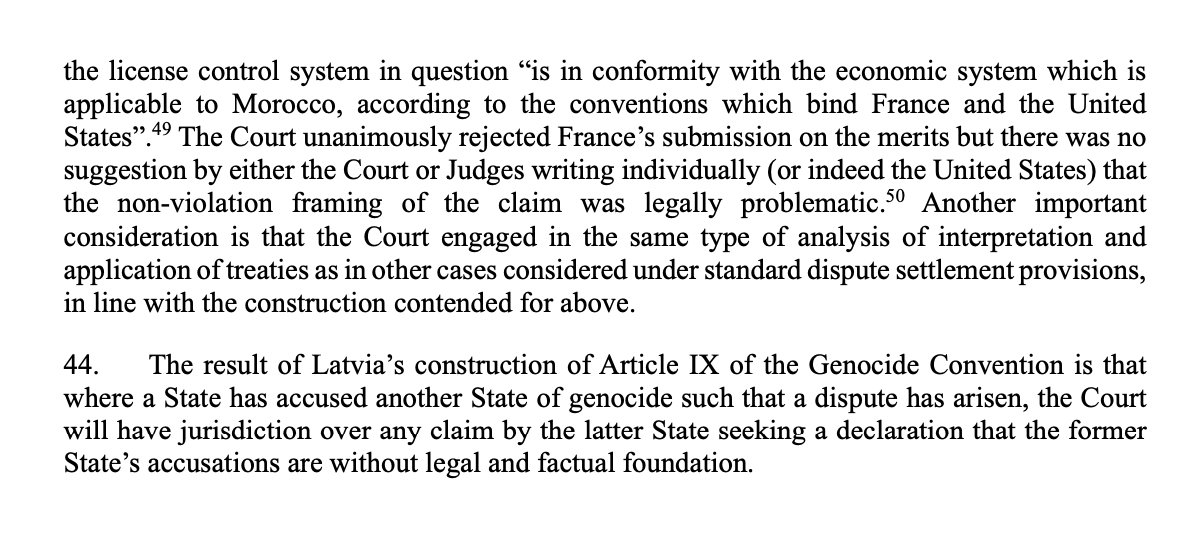
A few observations on #Latvia's and #Lithuania's respective declarations of intervention in the #ICJ's #Ukraine v #Russia case, under article 63 of the ICJ Statute and on the basis of them being parties to the Genocide Convention. 1/15🪡
https://twitter.com/OriPomson/status/1551587861937491971?s=20&t=VzZyH8uuFUxyl9QCDDV7VA
While art 63 of the Statute enshrines the right to intervene, art 82 of the ICJ's Rules stipulates the form and content of a declaration to intervene. Art 83 thus compelled the two states to address important issues of procedure and substance which arise in the case. 2/ 



While the declarations of the two neighbouring states were submitted just a day apart and are supportive of Ukraine's case, they are quite different in their form, place emphasis on different issues and at times make different arguments (though not really contradictory). 3/
To begin, the #ICJ will need to address the possibility of intervention on issues of jurisdiction. To date, no such intervention has occurred, and El Salvador's article 63 intervention at the jurisdiction & admissibility stage of the Nicaragua case was rejected by the ICJ. 4/
Lithuania addresses the issue quite summarily, while Latvia engages in detail (and persuasively) with the Court's practice and academic literature to explain why its intervention should be deemed admissible. 5/ 







Moving on. Pursuant to the ICJ's Rules, both states identified "the particular provisions of the convention the construction of which it considers to be in question". While Latvia identifies arts I, II, III, VIII, IX, Lithuania only identifies arts I, VIII, IX. 6/
Nevertheless, Latvia seems to only invoke arts II-III for purposes of shedding light on the concept of genocide, so probably not too much should be read into the discrepancy. 7/ 

Also in accordance with the Rules, both states provided "a statement of the construction of those provisions for which it contends". This is where the declarations provide interesting insights to arguments on jurisdiction and the merits. 8/
Latvia explains in quite some detail why jurisdiction extends to non-violation claims, relying (dare I say correctly: 

https://twitter.com/OriPomson/status/1498398907575029770?s=20&t=Tw3QxJZ7mN3vN5d4Mu8l2g) on the US Nationals in Morocco case. Lithuania's stance on non-violations only seems to be implied when discussing art IX more broadly.9/


Both states lay legal ground for rendering Russia's allegations of genocide in Ukraine as a violation of the Genocide Convention but provide somewhat different frameworks for reaching this conclusion. Latvia argues that the Convention prohibits abusive allegations of genocide.10/ 

For its part, Lithuania seeks to frame the issue as one of (lack of) due diligence - the Genocide Convention creates an obligation to act in due diligence before taking preventative measures against genocide pursuant art I - something which Russia has failed to do. 11/ 



On perhaps the most controversial issue – whether the Genocide Convention incorporates a prohibition on the use of force – the states make somewhat different points. Latvia addresses this issue in the context of 4 points on the Convention's relationship with the prohibition. 12/ 

The key point is probably the third: "the Convention prohibits an otherwise unlawful use of force as a means for prevention and punishment of genocide". Latvia seemingly relies systemic integration interpretation to make this point. 13/ 



Lithuania makes an intriguing argument. It relies heavily on art VIII, arguing that the provision "condition[s] the legality of any unilateral preventive measure by a State..., in the territory of another State, to the prior seising of the competent" UN organs. 14/ 

While seeking to intervene in support of #Ukraine, #Latvia and #Lithuania are not making identical arguments. Is this part of a strategy of the coalition of interveners? We'll probably never know, but will be interesting to see how other interveners address these issues. 15/15
• • •
Missing some Tweet in this thread? You can try to
force a refresh



